How Will God Use You?
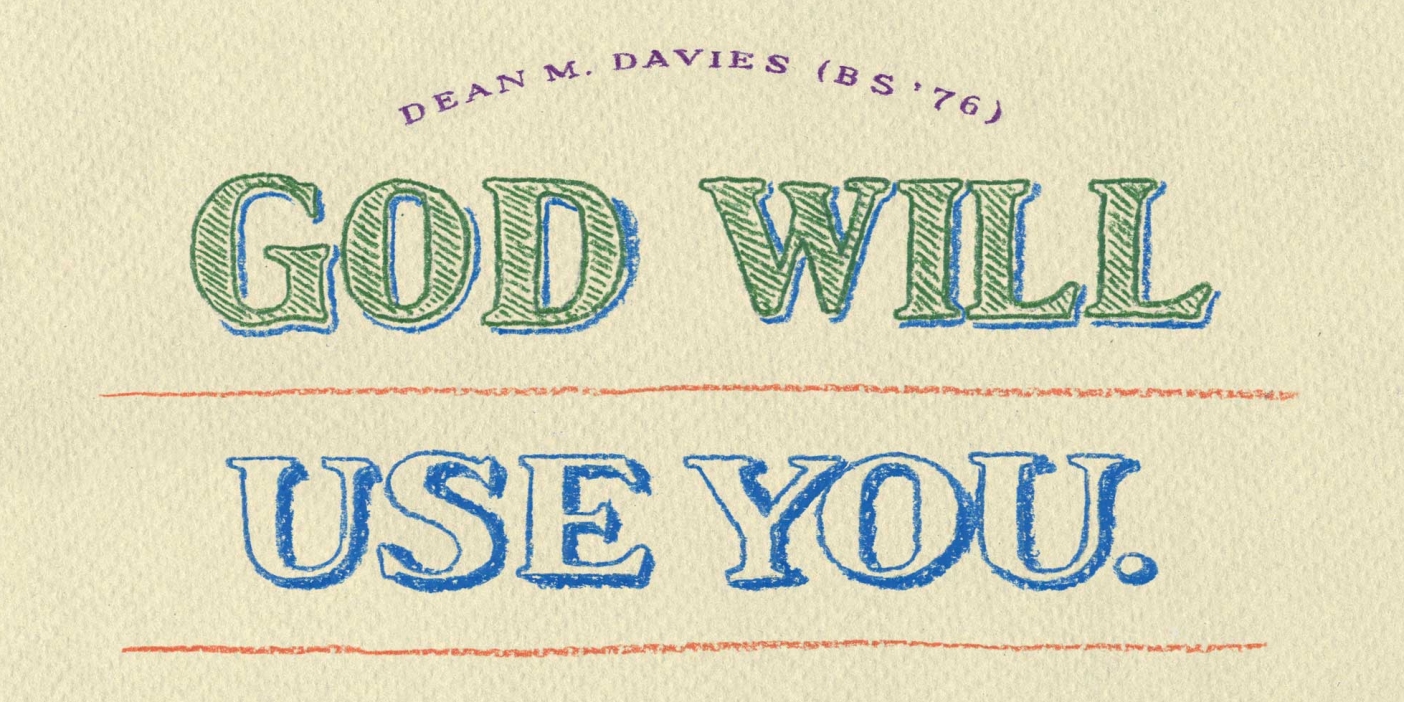
If you give your heart to God and walk in faith and compassion, He will use you in ways you cannot now imagine.
By Dean M. Davies (BS ’76) in the Spring 2016 Issue
Illustration by Olivia Juarez Knudsen (BFA ’10)
As I was watching students enter the Marriott Center this morning, it brought back a flood of memories. For a moment it seemed as though time had rolled back, and I could see myself as a student your age, entering this very building.
However, in my case, the reason I most often entered this building was to work the midnight cleanup shift here. If you look around, you will see the very places I walked with broom and mop, tidying up after devotionals, basketball games, and special events. So for those of you who might be tempted to litter, please keep in mind that I will be watching.
This campus is sacred. While I worked and studied here, I also pondered questions that many of you might be asking at this time in your lives:
I have to tell you that these questions felt all consuming and even frightening at times. I honestly didn’t know exactly where my life would go when I was your age. One thing is certain: I never imagined, as I was sweeping this great hall, that one day I would be at this pulpit speaking to you.
Today I want to address two of the questions you might be asking—things I myself desperately wanted to know when I was your age.
First, if you dedicate your life to God’s service, will He direct your steps and use you for His righteous purposes?
Second, if you choose to follow the Savior and walk in the path of discipleship, will the Lord watch over you, guide you, bless you, and fill you with a spirit of joy and fulfillment?
What should I study?What will become of me?Does the Lord care which career I choose?Will I ever meet someone, fall in love, and get married?Will I find happiness and success in life?
A Temple in Philadelphia
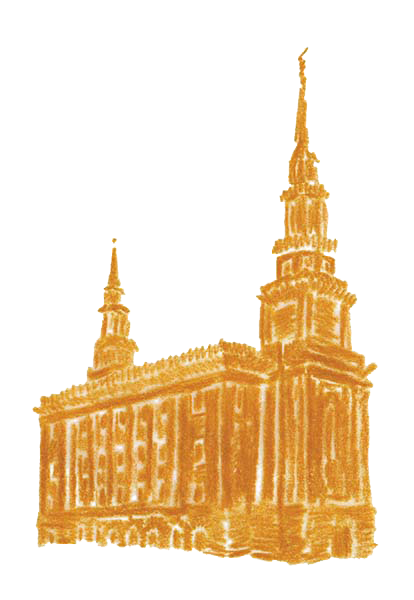
In the 10 years prior to my being called to the Presiding Bishopric, I had the blessing and privilege of helping to identify and to acquire sites for temples.
A few years ago President Thomas S. Monson announced that there would be a temple in Philadelphia, Pa., so we went to work researching possible sites where that temple could be built. Two sites ultimately emerged, and it just so happened that they were across the street from each other.
With the approval of the First Presidency, and after doing some preliminary due diligence, we began the process of acquiring the properties. To my great surprise, the owner of the first site accepted our offer without negotiation. I can’t tell you how remarkable this was!
It has been my experience that when a property owner discovers that the interested party is the Church, the price often goes up. To put this in perspective, the owner of the second property across the street responded with a price that was more than four times the price we offered.
When I met with the owner of the first property, he explained that he had owned the property for almost 25 years and could have developed it several times. But he had always felt that the property had a “higher and better purpose.” When we offered to buy it, he said it felt right.
However, you probably already know that when it comes to building the kingdom of God—and especially when it comes to building temples—things often don’t go as smoothly as we might hope.
Shortly after we filed the paperwork, the city of Philadelphia filed a legal claim through a city-controlled agency and stopped the transaction. They wanted to take title to the property themselves. This was a very serious matter. We did everything we could to meet with the agency and remove the claim. We were unsuccessful. This was a real problem and was very discouraging. We had felt so good about the property. We believed that this was the place where the Lord wanted His temple to be built.
As a final step we took our appeal of last resort to the mayor. He was the only one with the authority to change the situation.
With a heavy heart I flew to Philadelphia with the Church’s temple architect. There we were joined by an Area Seventy and two local Church members. One of these members was someone you may have heard of. He, too, attended this university. In fact, he played on the BYU football team and eventually ended up playing professional football for the Philadelphia Eagles.
Vai Sikahema (BA ’02) is a well-known local celebrity in Philadelphia. He had completed a successful career playing football and afterward became a sports announcer on a local television station.
Before the meeting with the mayor, our little group of five met together and talked about the purpose for the meeting. Then we knelt in prayer. We knew that we would desperately need the Lord’s blessing that day.
At the meeting the mayor, a city council member, and some of the mayor’s staff were in attendance. After introductions my heart sank as I realized the atmosphere in the room was more than a little cold. It appeared evident that the decision had already been made—that the hearts of the city officials had been set against our building a temple there—and that this meeting was little more than a formality.
As we started to explain the project, the mayor explained that his staff had assured him that this property was better suited for commercial purposes. An office building or a hotel would not only benefit the city with jobs but would provide needed tax revenue. We would need to look for another site.
Brothers and sisters, I have been in situations where all appears lost, where it seems that nothing you can do or say will make a difference. What I have learned in these situations is that if you are on the Lord’s errand, do all that you can do with the talents and abilities God has given you and then lift up your heart and plead for God to hear your prayer and intervene on your behalf. Even though you may appear to be outnumbered, even though it appears that all may be lost, our beloved Father in Heaven will reach out and take you by the hand. He will fight your battles. He will come to your aid.
I know that the five members of the Church in that room were pleading in our hearts for heavenly help. What could we say or do that would help change the mayor’s heart and mind?
I asked the mayor if the architect could show a simple drawing or two of how the temple might look. The mayor looked at his watch—a sign that he wanted the meeting to end—and said, “Okay.”
But before the architect could begin, Brother Sikahema asked the mayor if he could say something.
The mayor was acquainted with Brother Sikahema and said, “Of course.”
Vai paused for a moment and then stood. In a humble voice he went on to say something like this:
“Mr. Mayor, many years ago when I was a young boy in Tonga, my father and mother and my brothers and sisters sold our home, we sold fruits and vegetables, and we sold everything we could to have enough money to travel to Hamilton, New Zealand, to be sealed as an eternal family in the temple. You need this temple. This temple will bless your city. This temple will bless your community. It will bless the people.”
Then he sat down. We were all very quiet.
After a moment the Church architect stood and showed the mayor a few drawings of what a temple might look like. It was clear that in those few minutes something had changed. In reality, everything had changed.
As the architect sat down, the nonmember city councilman asked to speak. He stood and said, “Mr. Mayor, I have spoken with the leaders in the community and neighbors of this property. We want this temple. We need this temple. It will bless our city. It will bless our community. It will bless the people.”
As he spoke you could feel the Spirit come into the meeting. It was a sacred moment. What was to have been a 30-minute meeting lasted for the better part of an hour and a half. Oh, how different things were after that sublime moment!
To my surprise, at the end of this public meeting the mayor turned and asked if I would offer a prayer in that setting. His heart had changed. The temple would go forward. It would be built on the selected site.
My dear friends, the Lord knows the end from the beginning. He knew that a young football player at Brigham Young University would one day need to be present in a meeting with city officials at the moment when a site for His temple would be discussed. He knew that Vai Sikahema’s humble testimony would need to be shared—that it would be the turning point that made the difference at a critical time.
Heavenly Father knew Brother Sikahema, and He prepared him and put him in the appointed place so that his humble testimony would be shared and his faith and testimony would help further the Lord’s work among men.
God Will Use You
My beloved brothers and sisters, God used Brother Sikahema. He will use you. If you give your hearts to Him and strive to walk in faith and compassion on the path the Savior commanded, He will use you. He will use you in ways you cannot now imagine.
“But,” you might say, “I’m no one special. I’m not a football player. I’m not a celebrity. I’m nobody. I’m average in every way. I’m not particularly smart, eloquent, coordinated, well dressed, or even well behaved. How could God use me?”
Don’t you know that since the beginning of time, our Heavenly Father has reached out to those who were average and used them for His purposes?
The Apostle Paul wrote to you today as he did to the ancient Corinthians:
For ye see your calling, brethren, how that not many wise men after the flesh, not many mighty, not many noble, are called:
But God hath chosen the foolish things of the world to confound the wise; and God hath chosen the weak things of the world to confound the things which are mighty;
And base things of the world, and things which are despised, hath God chosen, yea, and things which are not, to bring to nought things that are:
That no flesh should glory in his presence. [1 Cor. 1:26–29]
Gideon was a farmer, but God saw him as the man who would deliver Israel from bondage.
When Samuel stood before the people to present their new, young King Saul, the Bible tells us that Saul was so terrified that he “hid himself among the stuff” (1 Sam. 10:22).
Even though Esther was an orphan and a captive in a strange land, she saved her people from execution. Even today the Jews celebrate the Feast of Purim to commemorate her courage.
When it came time for our Savior to restore His Church to the earth, whom did He choose? There were many refined, educated, well-dressed, well-spoken people on the earth at that time. But our Savior chose a rough, humble boy—a farmer—a youth with very little formal schooling.
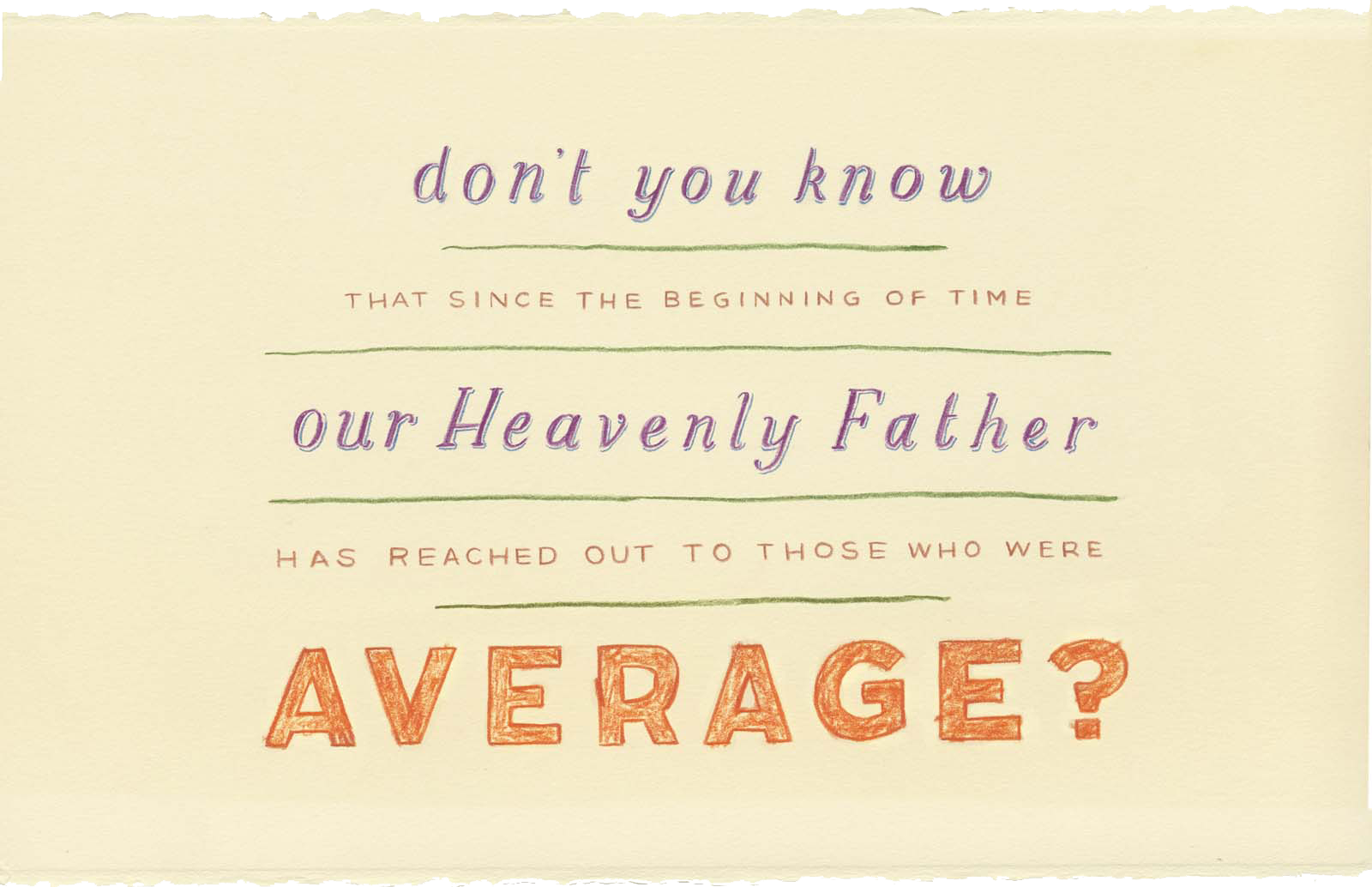
Why does the Lord choose the weak things of the world for His purposes? Why does God choose the “base things of the world, and things which are despised”? Paul answered his own question: “That no flesh should glory in his presence” (1 Cor. 1:28–29).
Why do you suppose God told Gideon to keep sending his troops home until Gideon had only 300 men to face more than one hundred thousand of the enemy?
Why do you think our Savior chose a fisherman to be His chief apostle who would lead the Church after He was gone?
Why do you suppose God chose an untutored farm boy to translate the Book of Mormon?
First, God doesn’t look on our countenance or the height of our stature: “The Lord seeth not as man seeth; for man looketh on the outward appearance, but the Lord looketh on the heart” (1 Sam. 16:7).
Second, God is able to take the most humble clay and create of it a masterpiece. Truly, “if God be for us, who can be against us?” (Rom. 8:31).
Third, God chooses the average and the weak so that no man can boast and say, “I have done this out of my own ability.” He uses ordinary “earthen vessels, that the excellency of the power may be of God, and not of us” (2 Cor. 4:7).
When an army of one hundred thousand is routed by a band of 300, people give praise to God.
When a humble fisherman takes a small group of believers and shepherds them into a mighty Church, people lift up their voices and give thanks to God.
When a frontier boy leaves the plow and translates the most inspiring and life-changing text since the Bible, people glory not in the intellect of man but in the power of God.
Our Heavenly Father doesn’t need you to be mighty, intelligent, well dressed, wellspoken, or well inherited. He needs you to incline your hearts to Him and seek to honor Him by serving Him and reaching out in compassion to those around you.
I bear my personal witness that if God can use a humble janitor who spent many hours mopping and buffing the floors of the Marriott Center, He can certainly use you.
A Temple in San Salvador
The second thing I want to impress upon you today is that if you will follow Him in truth and might, He will bless you in ways you cannot comprehend.
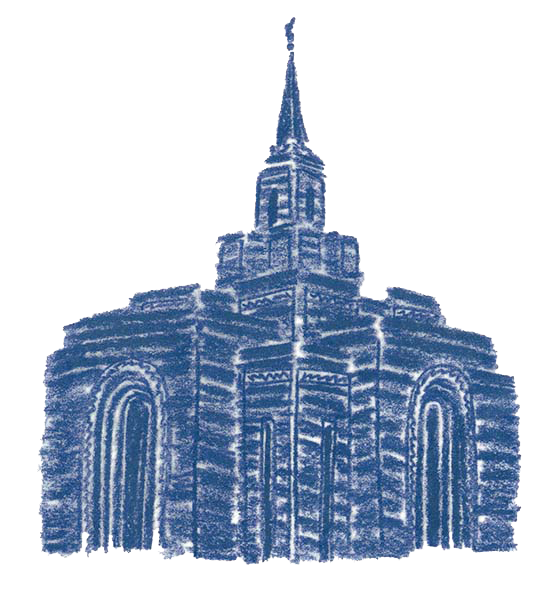
In 2006 President Hinckley and the First Presidency determined that there should be a temple considered for San Salvador, El Salvador. This was due to many reasons, including the armed robberies and other travel difficulties faced by our beloved Church members who were traveling from El Salvador to the Guatemala City Temple.
We spent many days searching for appropriate temple sites, but none seemed right. I visited a number of properties, including a full city block (eight acres) located in the older central part of the city. As I drove from property to property, nothing seemed right.
Eventually I passed by an emerging area in the western part of the city. I felt something in that area and walked around a number of blocks. One property surrounded by a wall was of particular interest. I reached out to the owners through the real-estate agent and received word that the property was not available. I returned home.
But the prophet had said a temple would be built in San Salvador, so I returned once again to look at other properties. None of them seemed right for the temple of God. Once again I found myself drawn to the property with the wall, and I made contact again. Once again they repeated that the property was unavailable. It was their historic ancestral homesite, and it was not for sale.
I returned home again but couldn’t shake the feeling that this was where the temple should be. I reached out and contacted the family, asking if they would at least meet with me. They agreed to do so. Once again I traveled to San Salvador, accompanied by Robert Fox, a friend and employee in the real-estate division. That morning we knelt in prayer in my room before beginning the day and asked for the Lord’s assistance.
We arrived at the home for the meeting with the Dueñas family. As we drove through the gate, it was almost like entering into a sacred garden. There were trees and flowers, and the busy noise from outside stopped at the gate. We parked, and Mr. Roberto Dueñas, his brother, and two of Roberto’s sons were awaiting us. They greeted us and then escorted us into their ancestral home, which was quite large and spacious.
We told them we were there by assignment of the Church President—President Gordon B. Hinckley—and that he wanted to bless the country and Church members by building a temple there. I showed pictures of other temples. I said that we felt their property, their ancestral home, was the right place.
It was no surprise when they once again declined. But we had to make the attempt. And so for almost one hour we tried every avenue of approach, such as a straight outright purchase, an exchange of property, and every other option we could think of. But they were firm in their resolve and said no at every offer. Once again every door seemed closed.
I had done everything I could do. I had prepared. I had done the best I knew how. But it simply was not enough.
My heart was filled with an urgent prayer: “Father, please help us to know what to say or do.” But we made no progress.
At last it became evident that our trip had been in vain. It appeared that nothing would change their minds. As we began to prepare to leave, something happened. You could feel the Spirit of the Lord enter the room. It was tangible. Everyone in the room felt it.
Roberto Dueñas, who was not a member of the Church, began to cry. Tears cascaded down his cheeks. It was one of the most powerful spiritual experiences I have ever felt. Finally, Mr. Dueñas turned to his brother and said, “If we can’t sell our ancestral home, couldn’t we sell the very best of the property we have across the street?”
His brother responded affirmatively.
We then talked about the other property. They owned several hundred acres across the main road from their ancestral home, with the heart of the property jutting out slightly so that every car that traveled this road would see the temple.
That was the property they offered for the temple of the Lord. It truly was a miracle.
From that moment forward, the blessings of the Lord attended the process. We acquired the property, and on Aug. 21, 2011, President Henry B. Eyring dedicated it to the Lord’s service.
I testify that this beautiful temple graces the beautiful hills of El Salvador not as a result of anything Brother Fox or I said or did. That temple stands there today because of the unspeakable blessings and powerful ministerings of the Holy Spirit of our Almighty God.
Our Merciful Father
My beloved young brothers and sisters, if the Lord cares enough to send His Spirit and make a site available for a temple, do you not supposed that He will send His Spirit and prepare your heart and guide your steps, not only this day but throughout the rest of your life and for the remainder of eternity?
You are inexpressibly more precious to your Father in Heaven than a plot of land. You are a beloved child of your Eternal Father. You are the offspring of the God of the universe!
Do you not supposed that He is mindful of you? Do you not suppose that He will use you and bless you in ways more glorious than are possible for you to imagine?
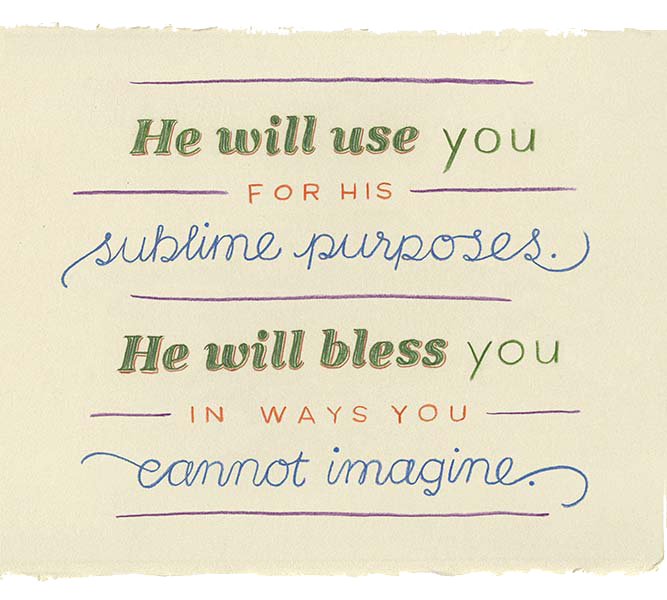
The scriptures tell us that if we “trust in the Lord with all [our] heart; and lean not unto [our] own understanding,” if in all our ways we “acknowledge him, . . . he shall direct [our] paths” (Prov. 3:5–6).The great King Benjamin perfectly summarized the message I wish to leave with you today. Will you listen to his words as though he were here before you today? He said:
I would desire that ye should consider on the blessed and happy state of those that keep the commandments of God. For behold, they are blessed in all things, both temporal and spiritual; and if they hold out faithful to the end they are received into heaven, that thereby they may dwell with God in a state of never-ending happiness. [Mosiah 2:41]
I raise my voice in praise of and in witness to this truth. I testify with all the tenderness of my heart that I have seen the promised blessings of God fulfilled over and over and over again in my own life and in the lives of many others.
I promise that if you will but incline your hearts to your Father in Heaven, if you will strive each day to love and follow Him more perfectly, if you will in compassion and kindness share the burdens and lift up the hands of those who are struggling around you, then the Lord God of heaven will direct your paths. He will use you for His sublime purposes. He will bless you in ways you cannot imagine.
How grateful I am to our merciful Father, who knows us, who loves us, and who desires that we become the magnificent beings of grace and light we were designed to become. I pray that you will capture this vision and know within your hearts that if you seek to become true disciples of our beloved Savior, the Lord will use you. He will bless you.
Dean M. Davies is the First Counselor in the Presiding Bishopric of The Church of Jesus Christ of Latter-day Saints. This article was adapted from a BYU devotional address given Nov. 3, 2015. Full text, audio, and video of this address are available at speeches.byu.edu.
Feedback: Send comments on this article to magazine@byu.edu.




